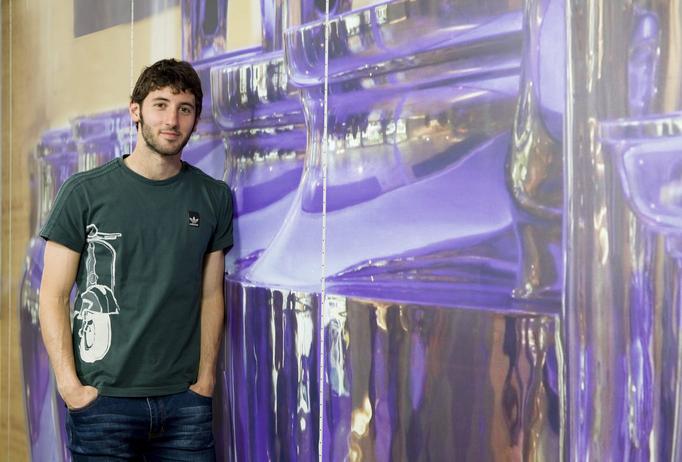Esteban Granero: the soccer expert in artificial intelligence has hung up his boots
Esteban Granero (34) is a unique guy, and not only because he is a footballer who does not look like a footballer. Someone who gives up a First Division team to retire at a club like Marbella instead of going to Qatar or China is, to say the least, special. Despite the fact that his signing with the Andalusian club has not given the expected result (promotion from Segunda B to Segunda) and this Monday, July 5, he has announced that he is hanging up his boots, he is happy there, with his wife, Marta, and her two girls.
No tattoos, no petrodollars, no extravagant mansions. The former Real Madrid player prefers to go to the mountains with his friends, play chess or read Kafka or Proust. Affordable and cheap luxuries, as he likes to emphasize. Although football has been his profession until now, it does not seem that he will end up, like many of his teammates, as a coach or commentator on a radio or television program. He has opted for artificial intelligence with a company, Olocip, which he founded in 2015 with two professors of Artificial Intelligence from the Polytechnic University of Madrid. His idea was to unite football and science, two apparently very different worlds, and in recent years he has managed to position Olocip as a pioneering international company in the application of artificial intelligence in the business and sports worlds (in addition to football, they apply that kind of analysis in tennis, basketball and even cricket). He now also employs the predictive models of him in the fight against the coronavirus.
Its clients include first division football clubs, high-performance centers and sports academies, but also the Marbella City Council, which has incorporated a tool developed by its company to obtain specific data on the city's tourism sector, analyze it and predict New strategies.
They also have a tool from Olocip, Granero's father-in-law and brother-in-law, the Cocheteux, owners of Pan Delirio, one of the most famous bakeries in Madrid, especially for the roscones. Thanks to the footballer, Javier Cocheteux father and son have managed to optimize orders from suppliers and optimize daily bread production.
The idea of artificial intelligence came to Granero in San Sebastián, when he saw how Real Sociedad plays and games were analyzed. The pirate, the nickname they gave him when he started playing professional football in the Madrid youth academy because he always went uncombed and unshaven, spent four years (2013-2017) in the capital of San Sebastian. A serious injury kept him away from the field for several months, during which he dedicated himself to thinking about the project, as well as reading classics (he is a voracious reader), acting as a literary critic for Newtral (Ana Pastor's project) and playing the guitar with his friend Leiva, who visited him whenever he could at his house in front of La Concha.

btw the tutorial on how to change mac folder icons is inside the pack! (.❛ ᴗ ❛.) i'll be making more compatible wal… https://t.co/Eh8m5RKtTs
— jisu 🐤 Mon Mar 23 01:04:05 +0000 2020
Granero has announced his dismissal from football with a message on his social networks. "Nothing is sad until it's over. Then everything is", he has written on his Twitter account along with an image of the beginning of him, when he was a kid.
Farewell
In his farewell, El Pirata has remembered all those who have accompanied him "at some point" during these years. "To those who did me good, total gratitude. But those who helped me and I never found out about it, nor did I ever know about you, eternal love. To those who did good once, you gave me more than I gave you. Those who did me wrong when I didn't deserve it, I don't hold a grudge against you. To those who did wrong, it's a good day to recognize that I regret it, "he wrote.
In addition, he has dedicated a few words to his companions. "What an honor to have been one of you! Retirement is the death of the footballer. But, to paraphrase Richard Dawkins: All of us are going to die someday, and we are lucky for it. Most people are never going to die because they never they are going to be born. The potential of people who could have been here in our place, but who will never put on their boots in a stadium, outnumber the grains of sand in the Sahara. Certainly, these 'unborn ghosts' include top scorers than Messi and more precise midfielders than Zizou. However, the stupefying reality is that you and I, with all our mediocrity, are here. We are one of the privileged few who won the lottery of birth despite all improbability. Should we complain about our inevitable return to that previous state from which most have never left?
According to the criteria of
The Trust Project